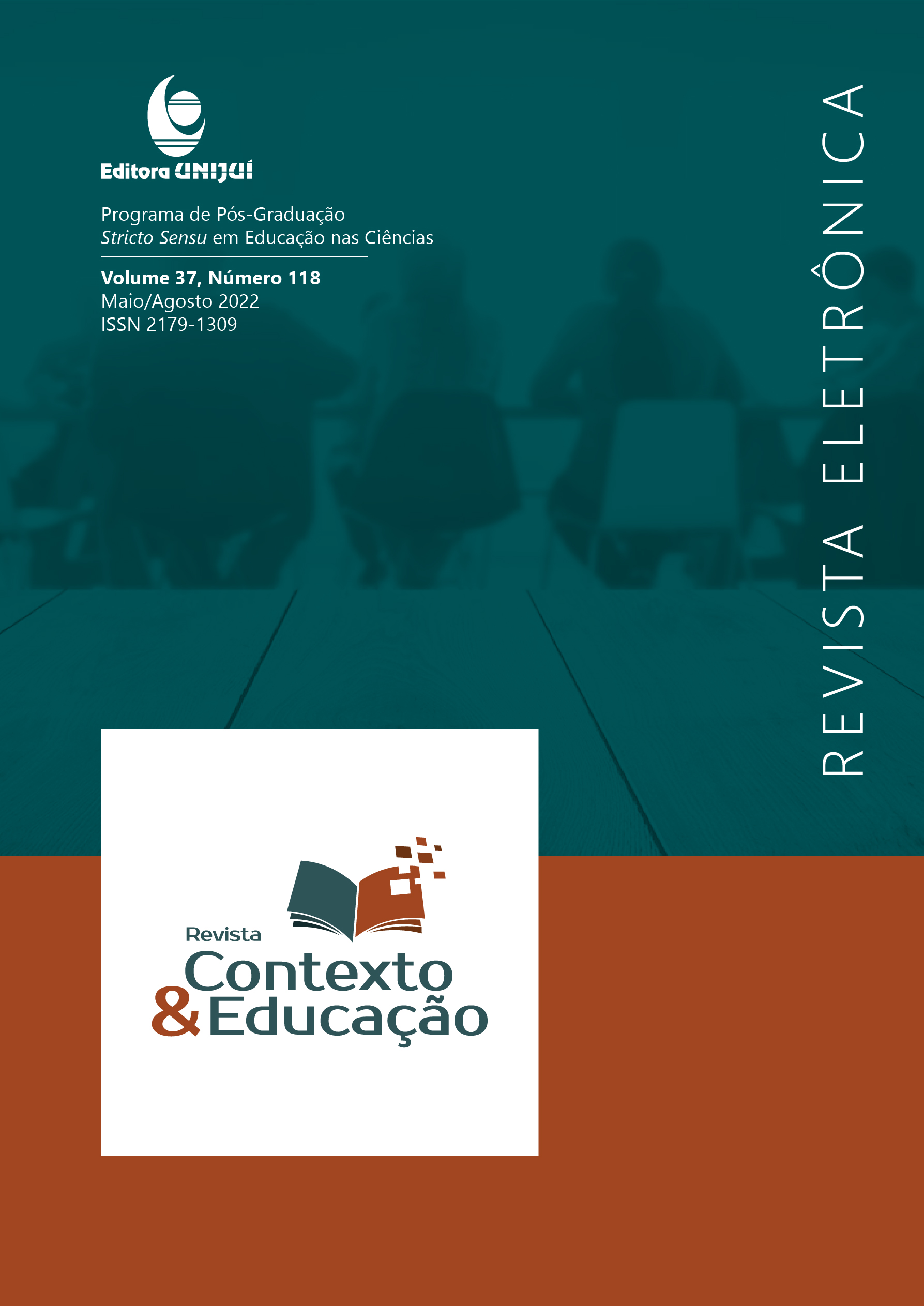The nature of science from the history and philosophy of science in the initial training of chemistry teachers: Design and validation of a teaching-learning sequence on the rutherford model
DOI:
https://doi.org/10.21527/2179-1309.2022.118.9415Keywords:
Formação de Professores, Estágio Supervisionado, Planejamento, Modelo atômicoAbstract
In this paper we analyze the process of planning and validation of a Teaching-Learning Sequence (TLS) on the Rutherford atomic model, part of a larger investigation in which a Training Program was developed with nine graduates from a public university in Paraná. This study, characterized as an action research and aimed at inserting Nature of Science (NOS) in the classroom, from the History and Philosophy of Science, was developed in the context of Supervised Internship. For the constitution of the data several written records were used, as questionnaires, besides the versions of the plans and the recording of the classes. The analyzed stages mainly comprise the selection of historical content and the construction and validation of activities for TLS. Among the challenges faced, we list the difficulty of breaking with the notion of historical approach as a linear reconstruction of the development of science. However, after the studies and the selection of historical content, the activities were significant for the insertion of NOS discussions in the classroom. The results show the importance of training actions capable of subsidizing reflection and experience focused on the aspects of NOS, aiming at the formation of teachers capable of understanding and teaching about science.
Downloads
Published
How to Cite
Issue
Section
License
By publishing in Revista Contexto & Educação, authors agree to the following terms:
All works are published under the Creative Commons Attribution 4.0 International License (CC BY 4.0), which allows:
Sharing — to copy and redistribute the material in any medium or format;
Adaptation — to remix, transform, and build upon the material for any purpose, even commercially.
These permissions are irrevocable, provided that the following terms are respected:
Attribution — authors must be properly credited, a link to the license must be provided, and any changes made must be indicated.
No additional restrictions — no legal or technological measures may be applied that legally restrict others from doing anything the license permits.
Notices:
The license does not apply to elements that are in the public domain or covered by legal exceptions.
The license does not grant all necessary rights for specific uses (e.g., image rights, privacy, or moral rights).
The journal is not responsible for the opinions expressed in the articles, which are the sole responsibility of the authors. The Editor, with the support of the Editorial Board, reserves the right to suggest or request modifications when necessary.
Only original scientific articles presenting research results of interest that have not been previously published or simultaneously submitted to another journal with the same purpose will be accepted.
Mentions of trademarks or specific products are intended solely for identification purposes and do not imply any promotional relationship by the authors or the journal.
License Agreement (for articles published from October 2025): Authors retain the copyright to their article and grant Revista Contexto & Educação the right of first publication.


